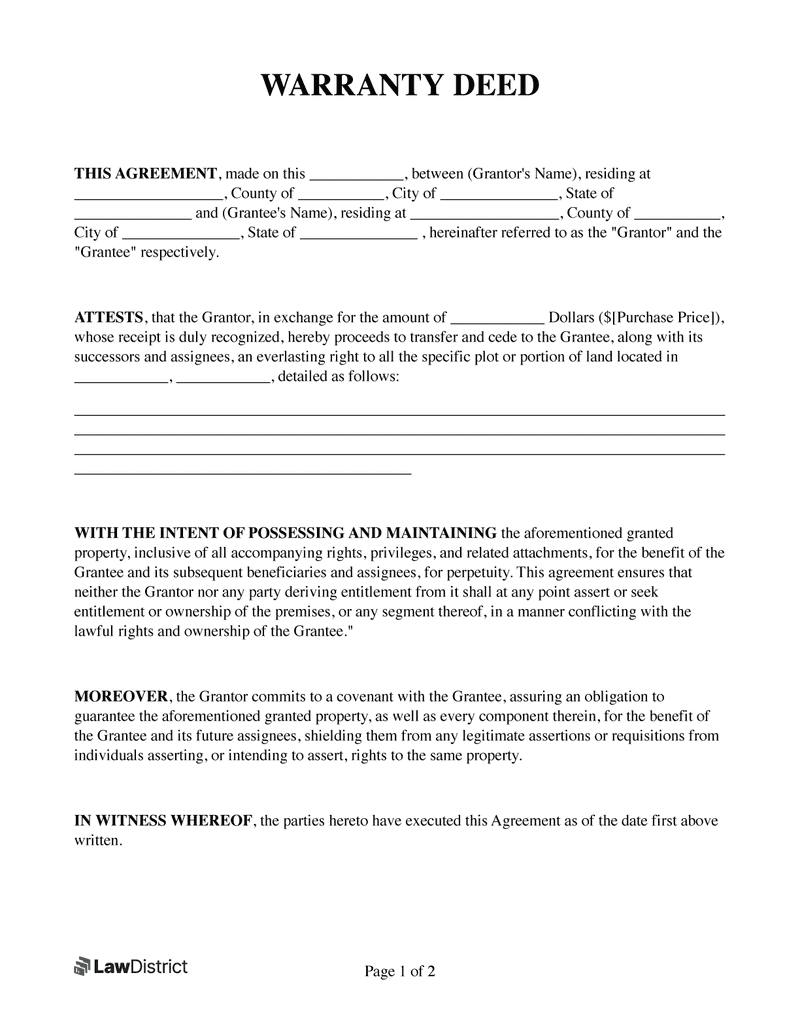How Do I Get a Warranty Deed?
Create your document using our free online customizable Warranty Deed template to ensure you don’t leave out any significant details.
Once the document has been prepared, it must be signed by the grantor and then notarized in the presence of a notary public. After that, the deed should be filed with the appropriate office in the county or jurisdiction where the property is located.
It's important to follow the specific rules and regulations of your state or jurisdiction to ensure the Warranty Deed is valid and enforceable.
